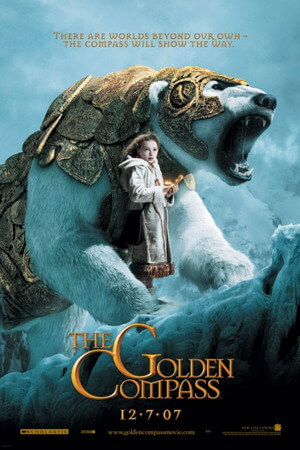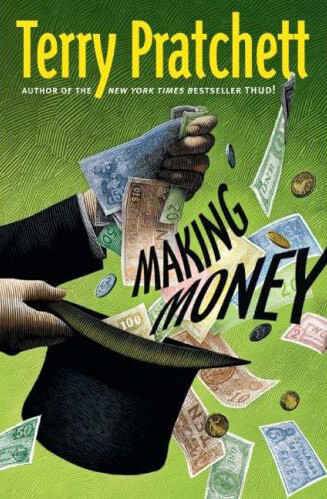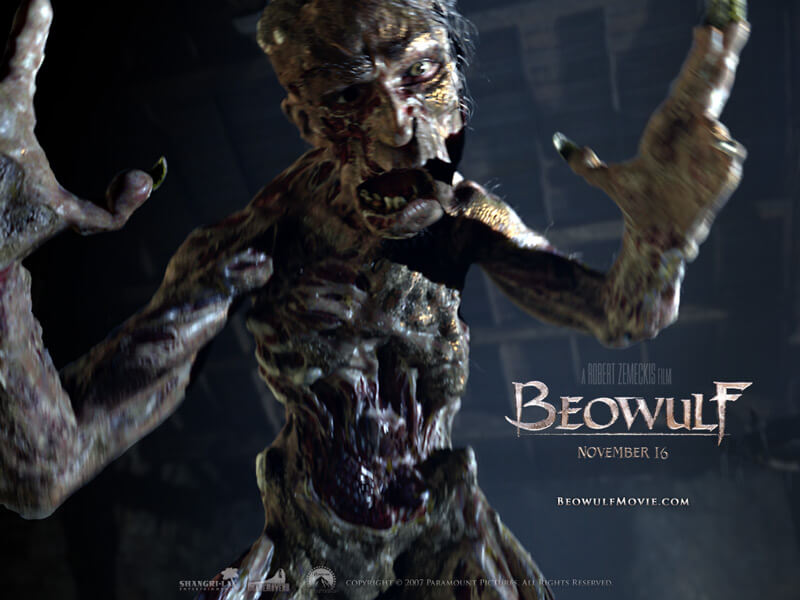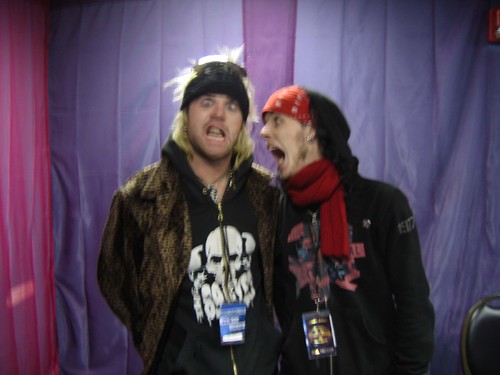The Golden Compass: Motion Picture
 The Golden Compass, by Philip Pullman, is the first book of an exciting trilogy about a young girl named Lyra who is drawn into an adventure that crosses into different dimensions and determines the fate of her realm as well as all others. In the first installment, Lyra is lured away from a familiar life at Jordan College to become the assistant of the beautiful Mrs. Coulter, while her closest friend, Roger, mysteriously disappears. When Lyra realizes Mrs. Coulter is up to no good, and finds out that Roger is in danger, she sets out on a perilous quest to save her friend.
The Golden Compass, by Philip Pullman, is the first book of an exciting trilogy about a young girl named Lyra who is drawn into an adventure that crosses into different dimensions and determines the fate of her realm as well as all others. In the first installment, Lyra is lured away from a familiar life at Jordan College to become the assistant of the beautiful Mrs. Coulter, while her closest friend, Roger, mysteriously disappears. When Lyra realizes Mrs. Coulter is up to no good, and finds out that Roger is in danger, she sets out on a perilous quest to save her friend.
The story is a bit laden with detail, but the intricate web of events pulls together to bring you a solid adventure worth reading. With that being said, I must admit I am a bit fearful about the quality of the movie trilogy. It was a very enjoyable, yet brief romp into the fantasy world created by Pullman. For those who have never read the books, the movie should be satisfying, despite some obscurities. Those who have read the books will most likely have mixed feelings, like myself. The more extremist hardcore fans will more than likely bash this film.
I’ll start with what the movie does wrong. The Golden Compass as a book is saturated with details and serves as the foundation for the rest of the trilogy. Therefore, it’s a real shame that The Golden Compass as a motion picture is missing a few key events that were not only interesting, but imperative to the story. Why they didn’t make it a three-hour epic in the vein of Lord of the Rings is beyond me. At a meager one hour and thirteen minutes, it would be impossible to squeeze in all the important information, but the creators do try. As a result, the events in the movie don’t always feel seamless, and have a rushed quality to them. If you didn’t read the books and miss the exposition at the beginning, you will find yourself lost in obscurity throughout the rest of the film. Even if you do pay attention, you may still find yourself wondering who’s who, or why certain characters are important at all. Continue reading
 If you are new to Terry Pratchett and his Discworld, fear not. Each book can mostly be read without worrying too much about what has been going on heretofore. This book, however, is in a way Part II of
If you are new to Terry Pratchett and his Discworld, fear not. Each book can mostly be read without worrying too much about what has been going on heretofore. This book, however, is in a way Part II of 




